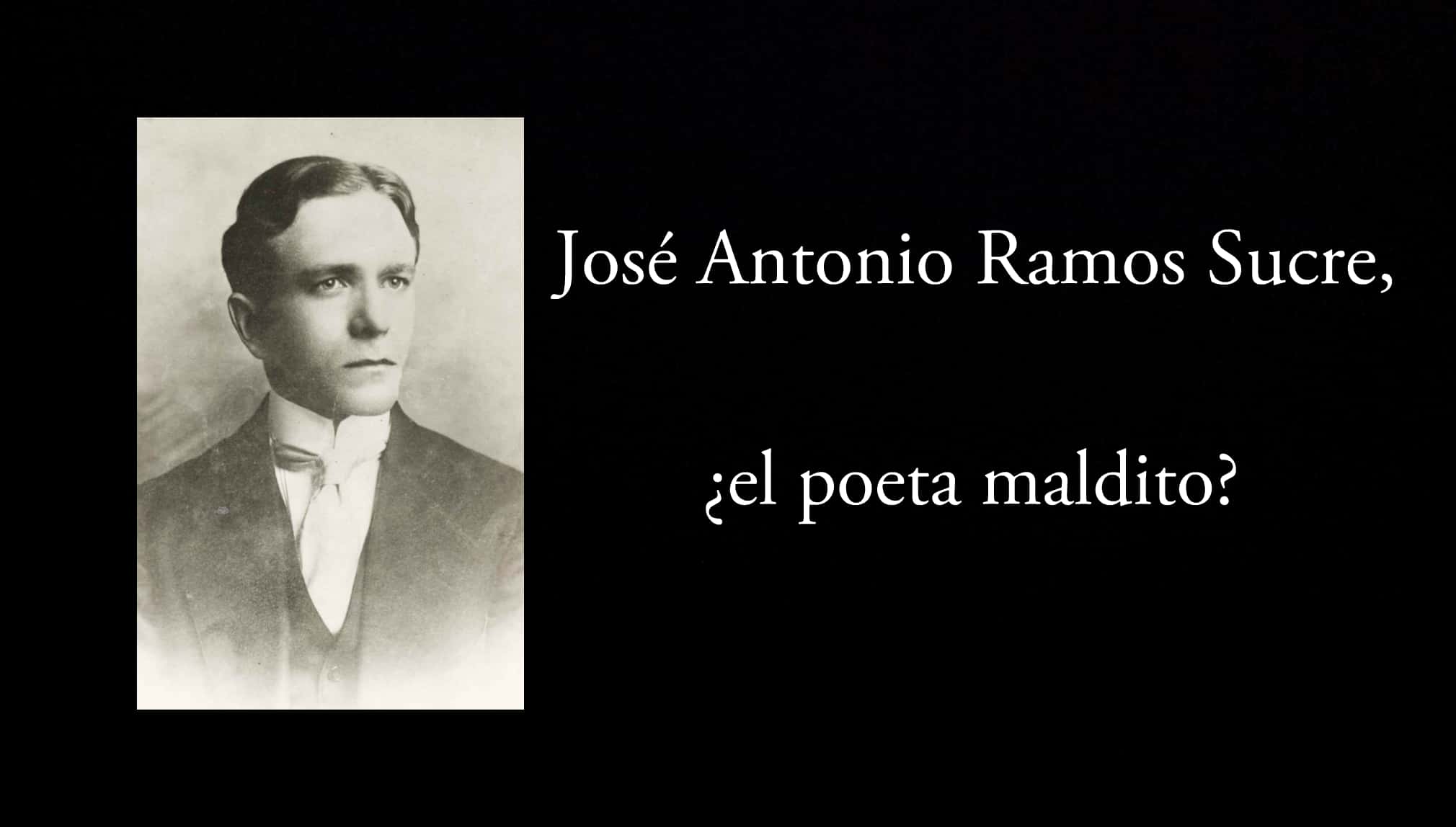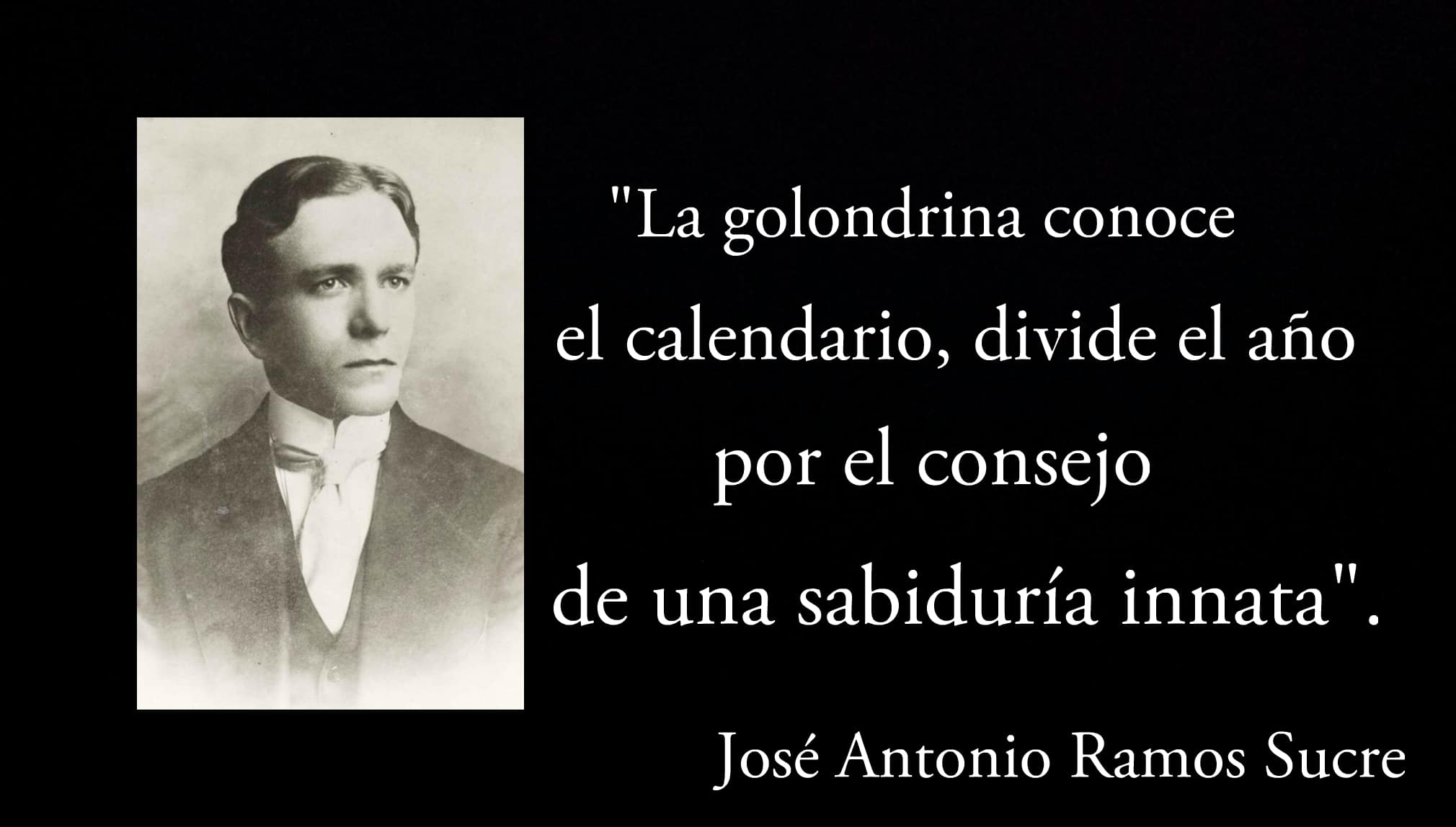
José Antonio Ramos Sucre, the cursed poet?
At the end of the XNUMXth century, the city of Cumaná (Venezuela) saw the birth of one of its best gifted and most representative writers, José Antonio Ramos Sucre. The writer came from a very intellectually prepared family, where his father, Jerónimo Ramos Martínez, tried to ensure that academic training prevailed. For her part, his mother, Rita Sucre Mora, greatly influenced the young poet's communicative ability. It was because of her that there was a family bond with Antonio José de Sucre, the well-known Venezuelan hero, as she was the great-niece of the Grand Marshal.
From a young age, the poet was characterized by being very self-absorbed and lonely. Ramos Sucre spent hours of his time alone in reading, cultivating your intellect on your own. Unfortunately, his life was blackened by a condition that afflicted him since he was young and that marked him deeply: insomnia.
Ramos Sucre, the philosopher, poet and Consul
Along with his self-taught training, the writer studied at the National College of Cumaná. At this institution in the state of Sucre, he obtained a bachelor's degree in philosophy at the age of 20 (1910). His grades, of course, were outstanding.
Although the writer wanted to enter the Central University of Venezuela without wasting time, an epidemic unleashed in the city of Caracas prevented this from happening.. However, and thanks to his self-taught training, as soon as Ramos Sucre resumed academic activities, he took his entrance exam and entered comfortably in 1912.
It was in the waiting period that José Antonio formally debuted as a poet by publishing works in regional media such as The Illustrated Lame. At just 21 years old, the writer was beginning to make his mark on Spanish American poetry.
The influence of philosophy in his work was notable, as well as the love of languages in his neat translations. The writer, despite his withdrawn character, constantly produced texts of various kinds, and came to have a wide audience captivated by his pen. Not in vain diaries like The Herald y The National they opened their spaces to the sublime prose of Ramos Sucre.
Little by little, Ramos Sucre's intellect led him to climb the ladder in society and in politics, to the point that in 1929 he held the position of Consul of Venezuela in Switzerland. The appointment was more than meritorious, however, the evil that afflicted him persisted, to the point of ruining his world.
José Antonio Ramos Sucre, the cursed poet?
At the same time that Ramos Sucre achieved a place in Venezuelan poetry, insomnia was breaking him down. His poems are a clear example of this, were the escape to denote his suffering. The writer did much to improve his condition, so much so that he went to hospitals and mental clinics to find a solution. What they were able to cure him was amebiasis in Hamburg, but health problems caused by lack of sleep weakened him.
It is almost incomprehensible to understand how, along with a life of personal success, pain and regret passed on the physical level. However, reading poems like "Prelude" make it clear what was really going on in his being.

Phrase from a poem by José Antonio Ramos Sucre.
No, Ramos Sucre was not a "cursed poet", he was a man endowed with a great gift to which he knew how to shine, but unfortunately the fate of insomnia marked his destiny. On his 40th birthday, and after several unsuccessful attempts, the poet tried for the last time to take his own life, and he succeeded. The only thing that perhaps can be added to give validity to that adjective with which many qualified him is that he did not die instantly, but that he agonized 4 days in a row after consuming a dose of veronal.
«Prelude» (as a sign of his great regret)
«I WOULD LIKE to be in empty darkness, because the world cruelly hurts my senses and life afflicts me, impertinent beloved who tells me bitterness.
Then the memories will have left me: now they flee and return with the rhythm of indefatigable waves and they are howling wolves in the night that covers the desert with snow.
Movement, an annoying sign of reality, respects my fantastic asylum; but I will have climbed it by the arm with death. She is a white Beatrice, and, standing on the crescent of the moon, she will visit the sea of my sorrows. Under its spell I will rest eternally and I will no longer regret the offended beauty or the impossible love ».